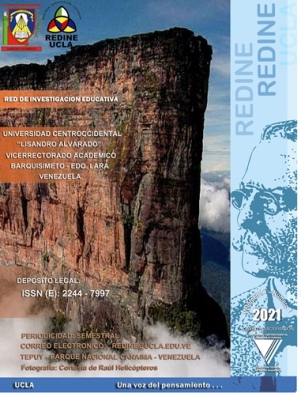The philosophy of mathematics and its mathematical objects
Keywords:
mathematical objects, platonism, structuralism, intuitionismAbstract
This article intends to expose the different points of view on the nature of mathematical objects as entities in the ontological and as theories developed in the philosophy of mathematics from the point of view of Platonism arising in its source idea and in counterpart of the anti -platonism as an alternate theory that refutes it. The ontological confrontation of mathematics focused between Platonism and structuralism, the two main currents of the philosophy of mathematics that are debated about the presence and nature of mathematical objects, is addressed
Downloads
References
Balaguer, M. (2009). Realism y Anti-realism in Mathematics. En Gabbay, M., Thagard, P. and Woods, J. Handbook of the Philosophy of Science. Philosophy of Mathematic. Disponible: https://www.calstatela.edu/sites/default/files/groups/Department%20of%20Philosophy/realism_and_anti-realism_in_mathematics.pdf
Beziau, J. (2000). Logical Autobiography 50. University of Brasil. Rio de Janeiro. Disponible: http://www.jyb-logic.org/papers/lauto50.pdf
Bremer, M. (2010). Contradiction in Mathematics. En Benedikt, T. (Ed), philosophy of Mathematics: Sociological aspects and Mathematical practice. College Publications. Disponible: http://www.lib.uni-bonn.de/PhiMSAMP/Data/Book/PhiMSAMP-bk_Bremer.pdf
Bueno, O. (2013). Putam and Indispensability of Mathematics. University of Miami. Disponible: https://miami.pure.elsevier.com/en/publications/putnam-and-the-indispensability-of-mathematics
Bueno, O. (2016). An Anti-realist account of the application of mathematics. Philos Stud. Springer. Disponible: https://pdfs.semanticscholar.org/0389/2a6301367e717c6d23ccc61730d4968f600a.pdf
Burgess, J. (2010). Parsons and the Structuralist view. Princetone University. Disponible:https://www.princeton.edu/~jburgess/ParsonsStructuralism.pdf
Callard, B. (2007). The Conceivability of Platonism. Philosophy Mathematic Vol. 15. No.3. Oxford University Press. Disponible: https://pdfs.semanticscholar.org/b745/5e6a56652b90d6dae53cffbabdb0551dd9ec.pdf
Capozzi, M. y Roncaglia, G. (2009). History and Philosophy of Logic from Humanis to Kant. En Leila Haaparanta (ed.), The Development of Modern Logic. Oxford University Press. Disponible: https://philpapers.org/rec/CAPLAP
Colyvan, M., (2006). Applying Inconsistent Mathematics, University of Sidney. Australia. Disponible: http://www.colyvan.com/papers/aim.pdf
Corfield, D. (1997). Assaying Lakato´s philosophy of mathematics. Disponible:https://www.sciencedirect.com/science/article/abs/pii/S0039368196000027
Dummett, M. (1973). Frege: Philosophy of Language. Harper & Row Publishers. New York. Disponible: https://academiaanalitica.files.wordpress.com/2016/10/michael-dummett-frege-philosophy-of-language.pdf
Ernest, P. (2007). The Philosophy of Mathematics, Values and Keralese Mathematics. The Montana Mathematics Enthusiast. Vol. 4 No. 2. UK. Disponible: https://scholarworks.umt.edu/cgi/viewcontent.cgi?article=1069&context=tme
Field, H. (1980). Science without numbers. A defense of Nominalism. Princeton University Press. Princeton, New Jersey. Disponible: http://www.thatmarcusfamily.org/philosophy/Course_Websites/Readings/Field%20-%20SWN%20selections.pdf
Field, H. (1992). A nominalistic proof of the conservativeness of Set Theory. Disponible: https://www.jstor.org/stable/30226470?seq=1#page_scan_tab_contents
Font, V., Godino, J. y Gallardo, J. (2012). The emergence of objects from mathematical practices. Educational studies in Mathematics. Disponible: https://pdfs.semanticscholar.org/159a/d667dd2f3f20331d9b42a4e25f78424e39fc.pdf
Friedman, M. (2006). Carnap and Quine : Twentieth Century echoes of Kant and Hume. En Analytic Kantianism . Philosophic Topic. Vol. 34 Nro. 1 y 2. Disponible: https://www.jstor.org/stable/43155410?seq=1#page_scan_tab_contents
Gray, J. (2007). Worlds out of Nothing. Springer Verlag. London.
Gullberg, E. (2011). Objects and Objectivity Alternatives to Mathematical Realism. Umea University. Sweden. Disponible: http://www.diva-portal.org/smash/get/diva2:415209/FULLTEXT01.pdf
Heller, M. (2006). Discovery the World Structure as goal of Physics. Pontificial Academic of Sciences. Acta 18. Vatican City. Disponible: http://www.pas.va/content/dam/accademia/pdf/acta18/acta18-heller.pdf
Hodesdon, K. (2013). Mathematical Representation: playing a role. Conference on the Philosophy of logic and Mathematic at Cambridge University. Disponible: https://philarchive.org/archive/HODMRP-3
Irvine, A. (1996). Philosophy of Logic. En Shanker, S. (Ed.) Philosophy of Science, Logic and Mathematics in the Twentieth Century. Routledge. New York.
Koss, M. (2013). Semantic and Mathematic Foundations for Intuitionism . Indiana University. Disponible: https://scholarworks.iu.edu/dspace/bitstream/handle/2022/17935/Koss_indiana_0093A_12346.pdf;sequence=1
Lower, B. Muller, T y Wilhelmus, M (2010). Mathematical Knowledge: a case study in empirical philosophy of mathematic. Disponible: https://www.researchgate.net/publication/48319172_Mathematical_knowledge_as_a_case_study_in_empirical_philosophy_of_mathematics
MacFarlen, G. (2000). What does it mean to say that logic is formal?.Dissertation Doctoral. University of Pittsburg . Disponible: https://johnmacfarlane.net/dissertation.pdf
Mancosu, P. (2008). The Philosophy of Mathematic Practice. Oxford University Press. New York.
Maloney, M. (2006). Constructivism: A realistic Approach Math. The University of Chicago. Disponible: https://pdfs.semanticscholar.org/b7f9/b4be41bfb668395153cc0e5a3da22d49a70f.pdf
Parsons, C. (1990). The Structuralist view of Mathematic Objects. Synthese. Kluwer Academic Plubishers. Netherlands. Disponible: https://link.springer.com/article/10.1007/BF00485186
Parsons, C. (2008). Mathematical Thought and its Objects. Cambridge University Press. Disponible: https://philpapers.org/rec/PARMTA-2
Restall, Greg. (2006). Logic. An Introduction. Routledge. London.
Rieger, A. (2008). Paradox , ZF, and the axiom of foundation. En Clark, P. and Hallett, M. and DeVidi, D. (Eds). Vintage Enthusiasm: Essays in honour of of J. L. Bell. University of Glasgow. Disponible: https://pdfs.semanticscholar.org/5bd1/c8264bbee19da132a795b1faa9a9595bbacc.pdf
Rodin, A. (2012). Axomatic Method and Category Theory. Disponible: https://arxiv.org/abs/1210.1478
Rodin, A. (2006). Toward Hermeneutic Categorical Mathematics. Ecole Normale Superieure. Disponible: http://philsci-archive.pitt.edu/2894/1/Interpretation.pdf
Ruiz, A. (1990). Matemática y Filosofía. Estudios Logicistas .Editorial de la Universidad de Costa Rica.
Salgado, S. (2011). Bertrand Russell: Un viaje a los fundamentos de la verdad. Cuadernos de Filosofía Dureiras. Disponible: https://es.slideshare.net/WilliamAlfredoLudea/bertrand-russell-un-viaje-a-los-fundamentos-de-la-verdad
Sereni, A. y Panza, M. (2015). On the Indispensable Premises of the Indispensability Argument. En Lolli. G,. Panza, M., Venturi, G. (Eds) Logic and Practice Italian studies in the Philosophy of Mathematics. Springer. Disponible: https://www.researchgate.net/publication/278757640_On_the_Indispensable_Premises_of_the_Indispensability_Argument
Shapiro, S. (2007). The Oxford Handbook of Philosophy of Mathematic and Logic Disponible: http://citeseerx.ist.psu.edu/viewdoc/download?doi=10.1.1.464.6584&rep=rep1&type=pdf
Strawson, P. (1975). Los límites del sentido. Ensayo sobre la Critica de la Razón Pura de Kant. Ediciones de la Revista de Occidente. Madrid.
Trobok, M. (2008). A Structuralist Account of Logic. Croatian Journal of Philosophy. Vol. VIII No.23. Disponible: https://www.researchgate.net/publication/255608702_A_Structuralist_Account_of_Logic
Von Bulow, C. (2009). Shapiro´s and Hellman´s Structuralism. Disponible:https://www.researchgate.net/publication/255929155_Shapiro's_and_Hellman's_Structuralism
Published
How to Cite
Issue
Section
Derechos del/de autor/es a partir del año de publicación
Esta obra está bajo la licencia:
Creative Commons Reconocimiento-NoComercial-CompartirIgual 4.0 Internacional (CC BY-NC-SA 4.0)
Las opiniones expresadas por los autores no necesariamente reflejan la postura del editor de la publicación ni de la UCLA. Se autoriza la reproducción total o parcial de los textos aquí publicados, siempre y cuando se cite la fuente completa y la dirección electrónica de esta revista. Los autores(as) tienen el derecho de utilizar sus artículos para cualquier propósito siempre y cuando se realice sin fines de lucro. Los autores(as) pueden publicar en internet o cualquier otro medio la versión final aprobada de su trabajo, luego que esta ha sido publicada en esta revista.




